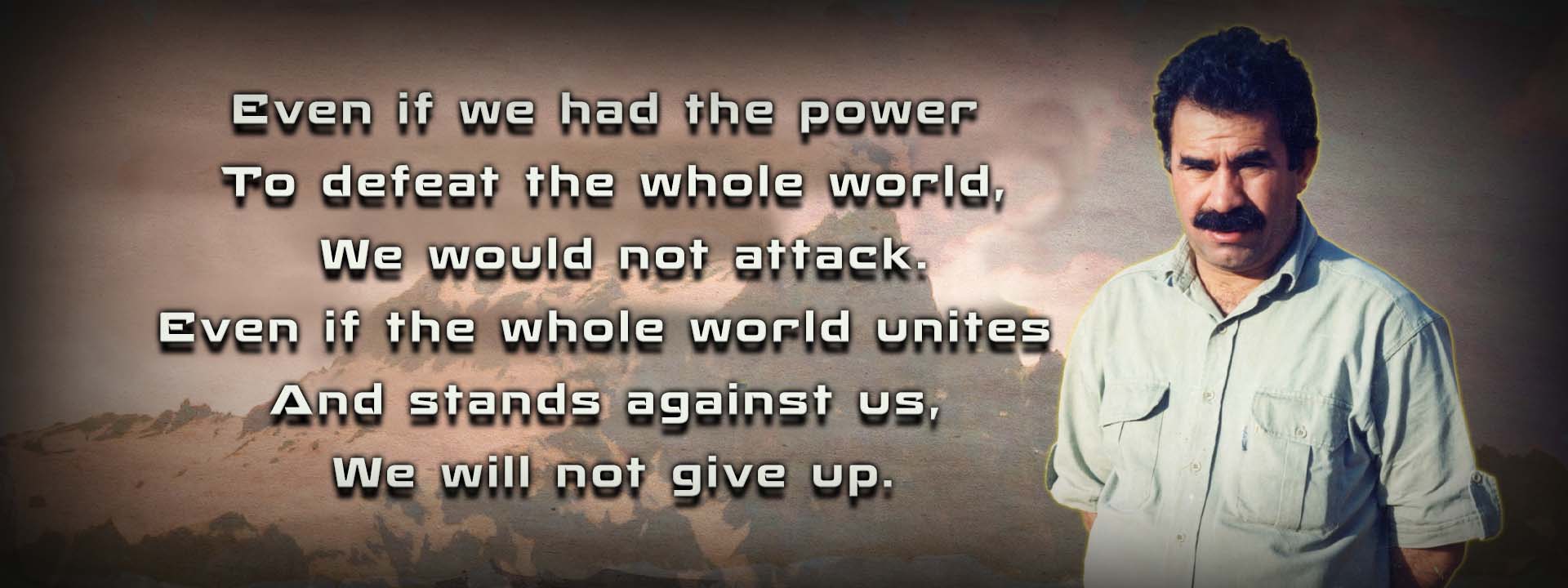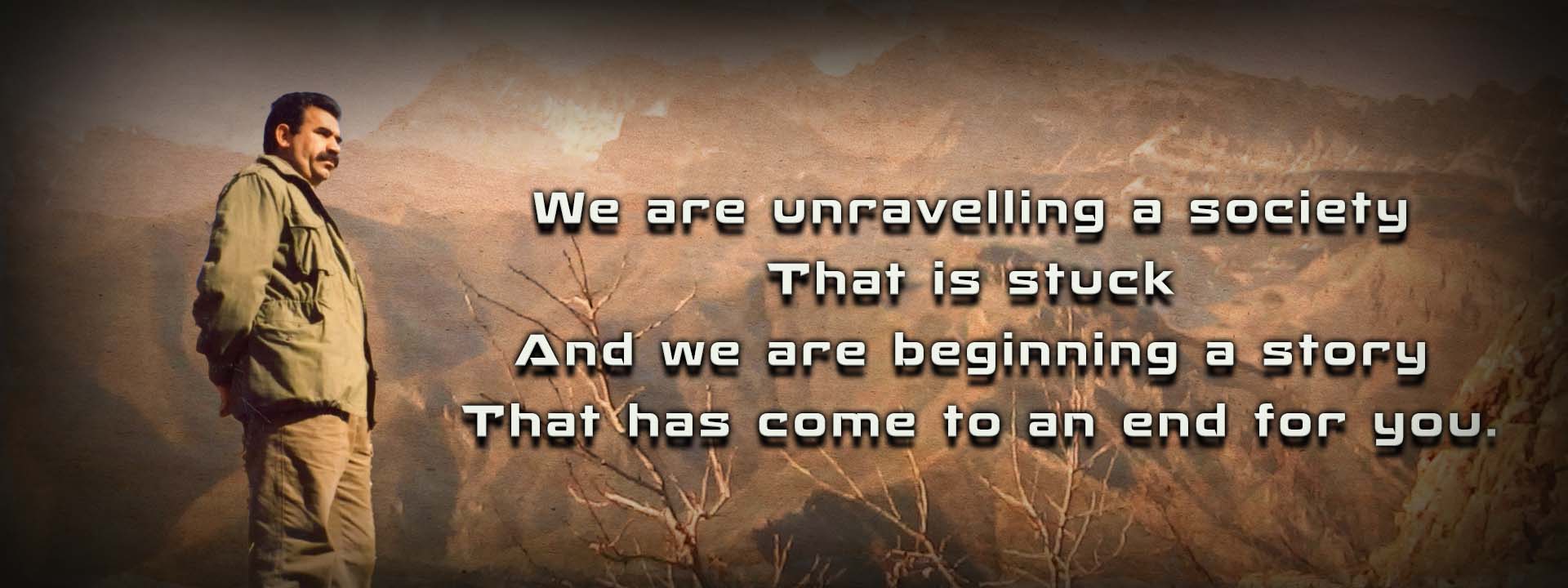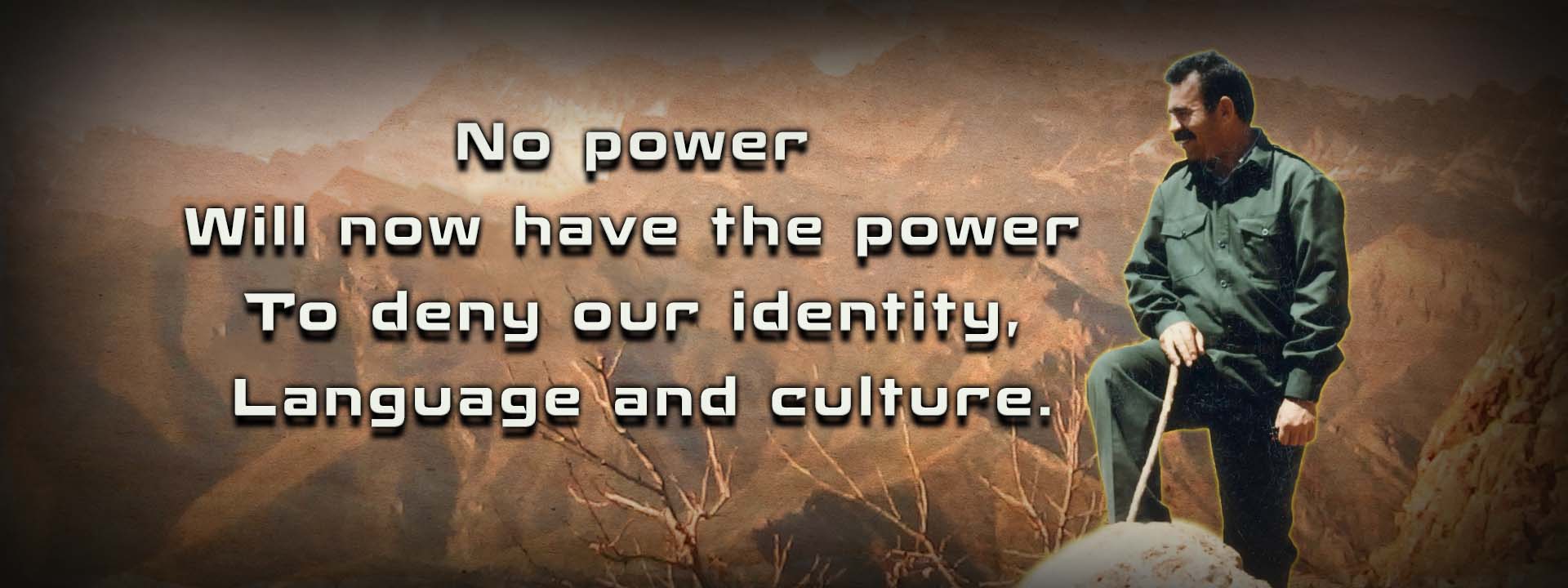History has often witnessed grave errors, which have led to the exact opposite of the desired outcomes being fought for.
It will happen again. As long as human life forms exist, they will understand how to arrive at a more correct scientific expression of the noble ideals of equality and freedom and will ensure a decisive advance along the correct path and achieve success.
Can Socialism Become An Alternative Form Of Civilisation?
«Socialist ideology, and the socialist system it created in opposition to the capitalist system, failed to become a different civilisation. Whether as a result of its ideological identity, or as a result of its premature birth or its mistakes, it failed to transform the longing for freedom and equality of the labourers and peoples into a differentiated development of civilisation. Despite claims for this, in the end it did not go beyond state capitalism. Numerous ideological tendencies and social movements similar to this have emerged in history. Although based on religious grounds and tribal regimes, the departures of the prophets Abraham and Moses represented tribal socialism in their initial form. Societies that were overwhelmed, replaced and terrorised, especially under the Assyrian hegemony during the antiquity in the Middle East, were only able to continue their existence in collective life forms as mystical religious orders. What is more, the clerical regimes of Sumer and Egypt were the first sacred examples of state socialism. They led the way to civilisation through state economies that somehow seem to resemble the Soviet regime. The Neolithic society prior to this was arranged as a communal society, which centred round the mother-woman. This social regime, which can be described as primitive socialism, did not know state establishment, and it existed for thousands of years. It was this regime that fermented humanity. It reverberated in the idea of paradise that continually nurtured human dreams of equality and freedom.
«Jesus Christ, and indeed the Christian movement of the first three centuries, offered the most shining example of religious socialism, both in length and in essence. The educators of this period represented ideology and practice in their personalities to such an extent that until that period they were rarely equalled.
«The departure of Islam, too, is among the foremost examples of the communal form. The equality and respect that existed amongst its members took the form of a sacred family. In its pure form the religious community (ummah) is a kind of feudal socialism. After both Christianity and Islam had reached state level the function of individual persons and dynasties increased and the religious community would distance itself from communal socialism. The increased importance of private property degenerated the initial socialist character and turned it into simply a hollow ideological shell. As a reaction to this privatisation, a large number of sects and religious orders continued their purity and their collective lives for a lengthy period. The numerous seemingly religious movements of the Middle Ages were in fact the collective orders of the oppressed that were opposed to the exploiting and dominant regimes. The weakness of their technological foundations prevented these movements from becoming alternative regimes based on equality and freedom. Despite the fact that some of them existed for hundreds of years, and that some even became political authorities at state level, their inability to become a model of civilisation is related to the weakness of their scientific-technological foundations. In addition in their essential ideological identities they were based on a class society model. Consequently they only epitomised the desire for equality and freedom in their dreams. On this basis they directed themselves towards sacred and human love, nurtured the dream of heaven, kept fraternal feelings alive, and transformed these into a powerful moral and literary tradition.
«Even at the birth of capitalism Mores’ ‘Utopia’ and Campanella’s ‘Country of the Sun’ represented the dream of an ideal socialism. Numerous individuals and societies heroically fought against religious dogmatism in the name of the freedom that gave birth to capitalism. In their struggles they did not have any doubt in their minds that they were fighting for equality, freedom and fraternity, and not for the subjection of other people as servants to their individual passions. The fundamental slogan of the French bourgeois revolution was ‘Liberty, Equality, Fraternity’.
«And Karl Marx and Friedrich Engels, the founders of scientific socialism, stated without any hesitation that they had established their ideological identity by taking from the movements of German philosophy, French socialism, and the English working class movement. Even this brief narrative indicates that labourers and oppressed peoples always fought for a communal life based on fraternity and an ideology that encompassed equality and freedom, that they suffered for it, and heroically resisted, from the primitive communal regime of the Neolithic era until the stage of scientific socialism. If they were unable to establish the regimes they deserved, the reason for this was neither lack of conviction nor insufficient struggle but the lack of the technological circumstances with which to reach their sacred aim. It was because of their technological backwardness that they were condemned to the civilisation of class society.
«The working class movement under the guidance of the Communist Manifesto was the last link of equality and freedom in this chain of history. The authors of the manifesto were aware of the utopian character of the movements prior to theirs. For this reason they made a diligent effort to be scientific. However their scientific nature was restricted to their era. Capitalism was going through its most mature age and it had just started to encounter crises. It had immense self-confidence. It claimed that history began with capitalism, and that this was destined for eternity. No matter how scientific it was, this socialism could not yet step solidly on the ground. The working class movement was at its infant stage. There was no sign of a liberation movement in the colonies. Despite this, they were not reluctant to courageously declare the class stance both ideologically and practically by establishing the First and Second Internationals during the second half of the 19th century. The aspect in their stance that deserved respect was their relentless struggle for and defence of workers’ rights. That was the prophetic aspect of their stance. The talk of such periods could not have been a debate about whether the strategy was suitable or not. In his rebellion against the terrible regime of Rome, Jesus was not in a position to think about strategy and tactics, and he was without any weapon other than his firm belief in his god. However, he did not have the slightest hesitation in taking the step forward that was meant to enable humanity to enter into a stage of infinite freedom, which did become a significant step in history. Steps of this nature were always granted sanctity. The movements of the founding heroes of socialism, and their initial social basis, also deserve such sanctity. Political successes or bitter losses were secondary issues in comparison with the essence of their struggles.
«The failure of the Paris Commune and the collapse of the Second International did not prevent scientific socialism from further embracing its aims, and in the Leninist stage it achieved a great political strength and state power. In the classical definition, one third of the world declared that the proletariat and oppressed nations had made the transition to the age of socialist civilisation. It laid claim to being in competition with capitalism in all spheres of life. For the first time in history the republics of equality and the freedom of the oppressed truly showed their strength by standing on their own feet for a lengthy period. However, these republics collapsed, they lost their historical significance before the end of the 20th century without lasting even a hundred years. Whilst the propaganda motivated scientists of the bourgeoisie declared this development to be the bankruptcy of socialism, Marxists judged the same development to represent various forms of betrayal, and those who piously believe in socialism regarded it as the collapse of their sacred dreams. More sober minded and genuinely scientific approaches concluded that both the great disappointment and the betrayal theories were easy options based on subjective judgement. Whatever had happened was expected to happen. Dreams and desires had collapsed because they did not fulfil or represent what was expected of them. As opposed to being disenchanted or pleased about this, the method of science has always been to question where the truth lies, and to find a path to success.
«The Soviet experiment has not been subjected to analysis in depth, and, even more significantly, all the outcomes of its collapse have not yet become apparent. Various matters are still in the dark, and are waiting for a new era. Despite this, the factors that are already apparent indicate the failures of the philosophy and practice. The questioning of whether the practice was socialism, or nationalism, was freedom, or totalitarianism, or was equality or state capitalism is just beginning. These questions do not belittle the genuine historical importance of the struggle of millions of labourers and numerous heroes, who upheld the belief and consciousness of scientific socialism, and they do not suggest that these struggles were in vain. On the contrary, as the only correct path through which to own up to these values, this questioning points out the indispensable importance of the correct analysis of this practice, filtering it through the sieve of science. Without successfully completing this task successful progress towards achieving the sacred aims of freedom and equality cannot be possible.
«History has often witnessed grave errors, which have led to the exact opposite of the desired outcomes being fought for. It will happen again. As long as human life forms exist, they will understand how to arrive at a more correct scientific expression of the noble ideals of equality and freedom and will ensure a decisive advance along the correct path and achieve success.
Writing by Abdullah Öcalan




